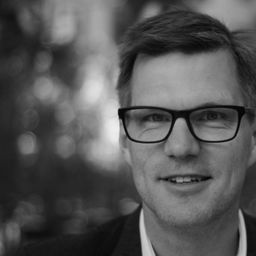
Currently leading the Swedish Research Council funded project Museological framings of Islam in Europe.
Sessions auxquelles Dr Klas Grinell participe
Samedi 4 Juin, 2016
Sessions auxquelles Dr Klas Grinell assiste
Vendredi 3 Juin, 2016
This forum will explore the current directions of critical heritage studies and what makes ACHS distinctive. Panel members will discuss what the term critical means to them, and what directions they would like to see develop in the future. To help develop an open dialogue, the session will also give considerable time to contributions from the audience.
Welcome addresses and cocktail, followed by the Concordia Signature Event "The Garden of the Grey Nuns". As the opening ceremony and cocktail take place in the former Grey Nuns' Motherhouse, recycled into campus residence and reading rooms by Concordia University, delegates will also have the possibility to discover the video Three Grey Nuns (3 minutes, by Ron Rudin and Phil Lichti. Three Grey Nuns recount their memories of communal life in the Grey Nun’s Motherhouse. Built...
Samedi 4 Juin, 2016
What if we changed our views on heritage? And if heritage has already changed? While, on the global scene, states maintain their leading role in the mobilization of social and territorial histories, on the local scale, regions, neighbourhoods and parishes have changed. Citizens and communities too: they latch on to heritage to express an unprecedented range of belongings that no law seems to be able to take measures to contain, often to the discontent of...
Much is being made of the perceived breakdown of the nation-state, which was historically configured as a “container” of heritage formations, adopting and perusing local traditions where possible but oppressing them where deemed unsuitable. Migration is seen as eroding the rigid boundaries of this configuration, potentially liberating identities and heritages in the process. This session addresses the relationship between critical heritage and redefinitions of self, other, community and place...
Dimanche 5 Juin, 2016
Digital installations and interventions have been seen as a promising ways to support and foster dialogue in museum exhibitions. How does this potential translate into practice and does it enable reflexive and critical approaches towards heritage-making? This session aims to explore how digital installations and interventions in the context of museum exhibitions envision the notion of the ‘dialogic museum’. It particularly aims to articulate and problematize the role of digital in...
"What does heritage change?" is a multifaceted question to which the answer(s) are in primary respects related to real-life negotiations among different groups of citizens, cultures, races, ethnic groups, sexual identities, and social classes about received, official and/or widely accepted or accomodated intangible attributes, cultural traditions, historic monuments, buildings, and other transmitted or revived historical legacies. Heritage designated by and for whom, for what motivations, an...
Lundi 6 Juin, 2016
The field of heritage has emerged as a key site of reflection. Influenced by shifts in the academy (e.g., post-colonial, post-structural and feminist theories), heritage scholars are bringing increased attention to the deployment of heritage as both a conceptual category and a contested field of power and discourse. Nevertheless, significant challenges remain in communicating what comprises the theoretical and methodological toolkit of heritage studies. Scholars are still mapping out the nuan...
Mardi 7 Juin, 2016
The Canadian Museum for Human Rights opened to the public in September 2014. Yet this "first museum solely dedicated to the evolution, celebration and future of human rights," met serious criticism from a variety of stakeholders before it even opened its doors. These stakeholders included Indigenous and Ukrainian communities, anti-poverty activists, feminists, gay rights activists, and disability advocates who questioned some of the museum's key curatorial choices in framing issues of righ...
Mercredi 8 Juin, 2016
||| Les Mohawks constituent la nation amérindienne la plus nombreuse parmi les dix différentes nations que compte le Québec. La nation mohawk compte près de 17 350 habitants. Il y en a 2 700 qui vivent hors réserve et les autres sont dispersés dans trois grandes communautés que sont : Kanesatake, Akwasasne et Kahnawà :ke. Située à proximité de Montréal, sur la rive sud du fleuve Saint-Laurent, la communauté de Kahnawà :ke compte près de 7 300 habitants. Elle est parmi les première...




